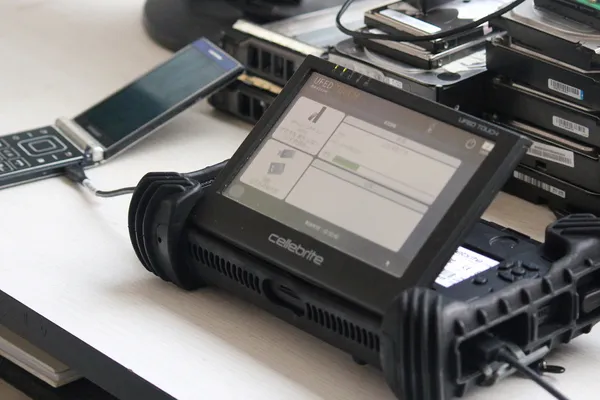Why has Pakistan’s spy agency purchased Israeli cellphone hacking tech? Since at least 2012, Pakistan’s Federal Investigation Agency and various police units have used products manufactured by the Israeli cyber technology firm Cellebrite.
UFED is Cellebrite’s flagship product, and its stock is traded on the Nasdaq exchange.
It enables law enforcement agencies to conduct digital forensics by hacking into password-protected cell phones and copying all data stored on them, including pictures, documents, text messages, calling histories, and contacts.
Yossi Carmil, CEO of Cellebrite, claims that his company’s tools are only sold to police departments and security forces to combat serious crimes, including terrorism.
Also read: Israeli doctors reattach boy’s head after he was hit by a car
However, the company’s hacking tools have found their way to organizations that oppress human rights activists, minorities, and the LGBTQ community over the years.
Cellebrite’s clients have included oppressive regimes that were or are still sanctioned, including Belarus, China (including Hong Kong), Uganda, Venezuela, Indonesia, the Philippines, Russia, and Ethiopia, as well as Bangladesh’s notorious Rapid Action Battalion.
Why has Pakistan’s spy agency purchased Israeli cellphone hacking tech?
The U.S. State Department’s 2022 report on human rights in Pakistan stated: “Significant human rights issues included credible reports of unlawful or arbitrary killings, including extrajudicial killings by the government or its agents; forced disappearance by the government or its agents; torture and cases of cruel, inhuman, or degrading treatment or punishment by the government or its agents; harsh and life-threatening prison conditions; arbitrary detention; political prisoners; transnational repression against individuals in another country; arbitrary or unlawful interference with privacy; serious restrictions on free expression and media, including violence against journalists…”
In Pakistan, it was reported in 2012 that the Sind Province police had acquired UFED Touch Ultimate devices manufactured by Cellebrite, and their use has grown since then.
These systems are regularly used by police units and the FIA, according to operating manuals, documents, and official invitations to bid.
Former and current FIA officials tasked with enforcing the draconian cybercrime law state on their LinkedIn profiles that they have been trained and certified to use these systems, which they use on a regular basis.
In the country, court rulings mention the extraction of forensic evidence from telephones but do not specify which technology was used. Pakistan also employs forensic systems manufactured by other companies, but in an FIA request for proposals issued in 2021 for systems manufactured by two other companies – Belkasoft and Compelson – both were required to support files created using Cellebrite’s technology.
The Punjab police department has issued bid requests for three UFED Ultimate devices. And one from the Peshawar police counterterrorism division, dated May of this year, includes a request to renew the UFED licence for another two years.
A 2021 catalogue from Pakistan’s National Radio and Telecommunication Corporation boasts a long list of indigenous technologies. On page 17, however, there is a listing for a Cellebrite UFED Touch 2.
NRTC promotes BlackBag’s Mobilyze digital forensic technology on the following page. In 2020, Cellebrite acquired BlackBag.
The spyware link between Israel and Pakistan spans decades, political parties, and governments.
When Cellebrite’s tools were first reported in use in 2012, Pakistan was ruled by the Pakistan People’s Party.
The trade continued under Nawaz Sharif’s Pakistan Muslim League administration, which also saw the passage of the draconian police surveillance act.
The 2021 FIA tender was issued during the tenure of Imran Khan, the leader of the Pakistan Tehreek-i-Insaf party, a time when Cellbrite’s Singapore subsidiary continued to sell its products directly to Pakistan.
The Peshawar police tender took place during the tenure of Pakistan Muslim League Prime Minister Shehbaz Sharif.
Cellebrite stated in its response to this article, “The company does not sell to Pakistan, directly or indirectly,” but refused to explain how that claim squares with Cellebrite-Singapore’s shipment certificates to Pakistan and official tenders in Pakistan demonstrating that the country’s investigation agency and police use its technology.
“Cellebrite is committed to its goal of creating a safer world by providing solutions for law enforcement bodies that permit them to solve crimes more quickly,” the company added.
“For that purpose, we have developed strict means of oversight that ensure proper use of our technology in the context of investigations carried out by virtue of the law.
As a global leader in digital intelligence, Cellebrite’s solutions assist thousands of law enforcement agencies to convict those who endanger public security and to do justice to the victims of crime.”
